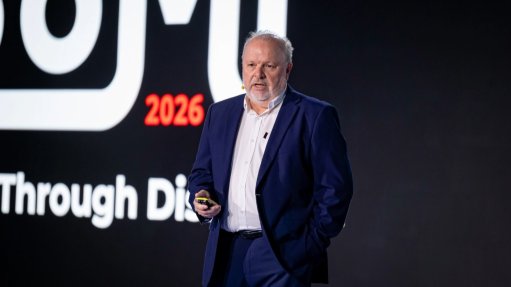Spanish blackout puts renewables in the crossfire
I went to Spain many years ago and visited the impressive Red Electrica, a world-class national grid and transmission system operator (TSO) that is partially State owned.
Red Electrica notes on its website: “We are responsible for ensuring that electricity is always available wherever you need it and for making it sustainable by promoting renewable energies.” It adds that it is the “cornerstone of the ecological transition process that the country is undergoing”. It advertently positions itself as an ecologically orientated TSO – the first of its kind.
A significant event happened in Spain on April 28, and it caught the attention of energy experts and those involved in the transition process – the Spanish grid fell off a cliff, and Spain and Portugal had a blackout for a few hours. At about 12:30 that day – just before the blackout –renewables accounted for 78% of electricity generation, with solar power’s contribution being 60%. In five seconds, Spain lost 12 GW to 15 GW of generation capacity, equivalent to about 60% of the national grid. The collapse required a black start, while the sudden drop in power and instability disconnected Spain from the French transmission system.
The incident, a technical issue, is being turned into a political football at a time when we are witnessing a counter-movement against climate activism and the global push for rapid decarbonisation. The crisis was a propaganda gift for disinformation. Fingers were immediately pointed at the problem of variable sources of power.
Red Electrica’s entire vision was built on the idea of being the first TSO that would confidently showcase that significant penetration of renewables can be managed by transmission operators skilfully within an existing grid system. The April 28 incident showed gaps in the system, which need urgent attention. But the gaps are not insurmountable.
Several months before the incident, in November 2024, Spain suffered horrific flooding following torrential rains in Valencia. The national and local governments were sharply criticised by locals and the general public alike for poor responsiveness and planning. Spain’s Prime Minister,, Pedro Sánchez, had insults hurled at him and objects thrown at his motorcade.
The event of April 28 exposed the paradox we live in: solutions are acceptable as long as they affect no one, and climate risks are unacceptable if they affect everyone. These paradoxes of transitions to solve and transitions to resolve will not be free from the quagmire of polarised public opinion – some say do not increase the cost burden, so slow down the transition; others say, please, do something about climate change.
Indeed, while the UK’s Labour Party was putting out its green manifesto, a former leader of the party, now living in a sort of pariah status among his own party stalwarts, added vinegar to the explosion of dissent among opponents of green solutions. The Tony Blair Institute (TBI) report, ‘The Climate Paradox: Why We Need to Reset Action on Climate Change’, put the cat among the pigeons by calling for a reset of public opinion, climate activism and solutions.
Tony Blair started his foreword with provocativeness, stating that the ‘’debate on climate change is riven with irrationality”. He was attacking puritanical movements and calling for more pragmatic solutions. Blair punted the use of carbon capture, utilisation and storage (CCUS), even though he acknowledged that CCUS is “not commercially viable”. In the same breath, he declared: “Nuclear power is going to be an essential part of the answer”. All well and good – except under Donald Trump, the US is busy cutting subsidies and grants to finance CCUS ventures.
The undertone of the TBI report is to also attack the notion that only rich Western countries should carry the historical obligation and debt for the rest of the world. His whataboutism about China’s and India’s emissions – just to take us off track – while the report rumbled through the eras of ‘Activism’, ‘Optimism’ and ‘Apathy’, was meant to let us know that we must not forget those guys in the East. In essence, China, India and the South are now the problem: it is their turn to pay, as voters in the West will no longer take on the cost for everyone else. This is the new Blair era of moral abdication of responsibility – not an era of pragmatism, as the report suggests.
Reading recently the book by Jean-Baptiste Fressoz on the history of energy transitions, there is a curious section on the US’s Atoms for Peace period: in the 1950s, the US Atomic Energy Commission (AEC) lobbied for the global expansion of nuclear power and so, remarkably, undertook the first scientific and energy future studies. These studies provided the template for future energy studies and scenarios.
The AEC draws correlations between the rise in global carbon emissions and global warming. Its solution: the future must be nuclear.
Nuclear is back, with a lot of talking up for the expansion of small modular reactors. Trump has ordered a directive to nuclear regulators to speed things up. He was responding to the surge in demand for electricity from AI data centres and bitcoin producers, in which he and his family have a vested interest.
The current energy consumption by US-based data centres has demand curves the size of the whole of Japan’s electricity demand, bringing baseload solutions back to the forefront of the energy systems debate.
The Spanish incident is revitalising opposition against renewables, with calls for the gap to be filled and sustained by oil, gas, nuclear and coal. Demand for energy – for industrial purposes, household use and gluttonous AI data centres – is forcing a reconsideration of the climate-energy nexus: security and economic supremacy are being pushed to the top of the list, not climate change.
We have entered a cynical era in which intolerant forces of power are reshaping the entire way we think about what is right and what is wrong – in their worldview, everything goes.
Article Enquiry
Email Article
Save Article
Feedback
To advertise email advertising@creamermedia.co.za or click here
Press Office
Announcements
What's On
Subscribe to improve your user experience...
Option 1 (equivalent of R125 a month):
Receive a weekly copy of Creamer Media's Engineering News & Mining Weekly magazine
(print copy for those in South Africa and e-magazine for those outside of South Africa)
Receive daily email newsletters
Access to full search results
Access archive of magazine back copies
Access to Projects in Progress
Access to ONE Research Report of your choice in PDF format
Option 2 (equivalent of R375 a month):
All benefits from Option 1
PLUS
Access to Creamer Media's Research Channel Africa for ALL Research Reports, in PDF format, on various industrial and mining sectors
including Electricity; Water; Energy Transition; Hydrogen; Roads, Rail and Ports; Coal; Gold; Platinum; Battery Metals; etc.
Already a subscriber?
Forgotten your password?
Receive weekly copy of Creamer Media's Engineering News & Mining Weekly magazine (print copy for those in South Africa and e-magazine for those outside of South Africa)
➕
Recieve daily email newsletters
➕
Access to full search results
➕
Access archive of magazine back copies
➕
Access to Projects in Progress
➕
Access to ONE Research Report of your choice in PDF format
RESEARCH CHANNEL AFRICA
R4500 (equivalent of R375 a month)
SUBSCRIBEAll benefits from Option 1
➕
Access to Creamer Media's Research Channel Africa for ALL Research Reports on various industrial and mining sectors, in PDF format, including on:
Electricity
➕
Water
➕
Energy Transition
➕
Hydrogen
➕
Roads, Rail and Ports
➕
Coal
➕
Gold
➕
Platinum
➕
Battery Metals
➕
etc.
Receive all benefits from Option 1 or Option 2 delivered to numerous people at your company
➕
Multiple User names and Passwords for simultaneous log-ins
➕
Intranet integration access to all in your organisation


















